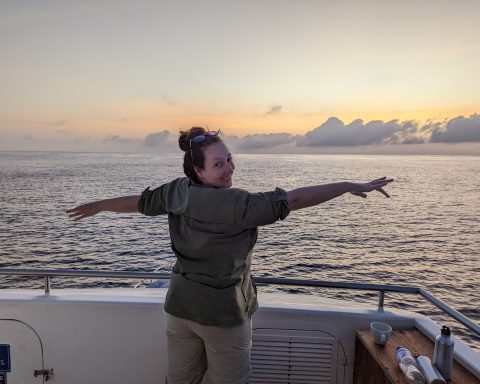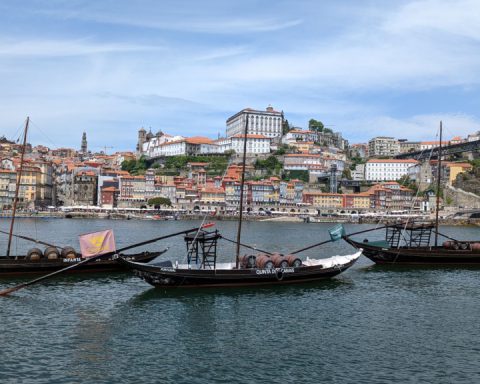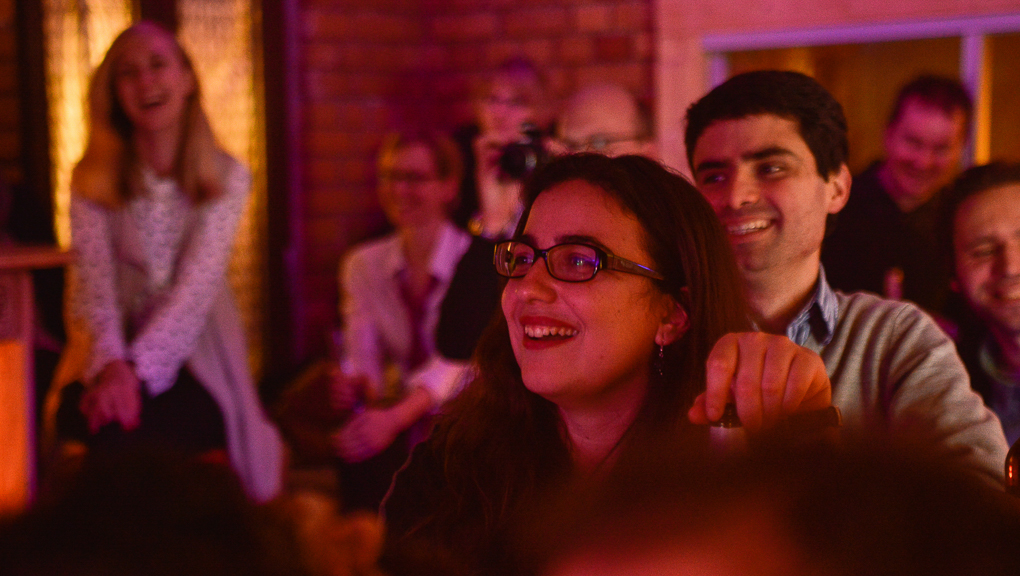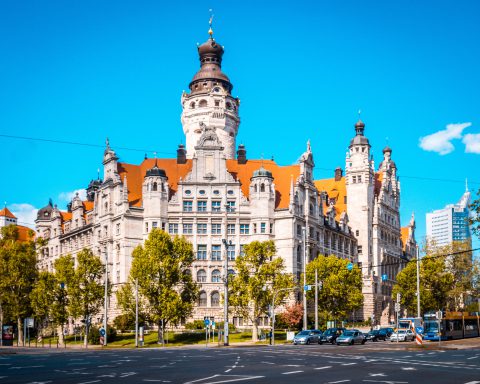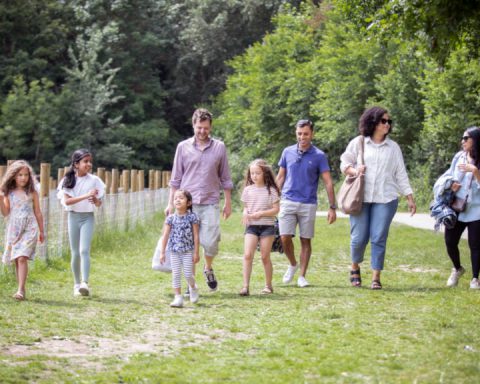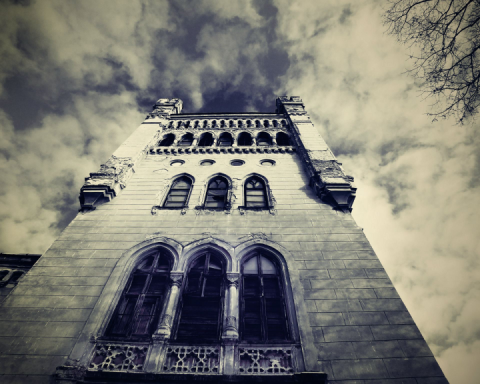In 2013/2014 I lived for one year in Rijeka, the principal seaport and third largest city of Croatia. If there’s one thing I’ve learned in that year – besides the fact that Croatian people always make time for coffee – it is that the Croats are above all very proud people. “Our beautiful homeland, so fearless and gracious (…) tell the world that a Croat loves his homeland.” The lyrics of Croatia’s national anthem perfectly reflect this attitude. But what exactly are they so proud of? Based on my personal impressions and experiences, that answer would be: They are proud of everything that has to do with Croatia. Really, everything.

And to be fair, Croats do have a lot to be proud of: beautiful coastal towns like Trogir, Split and Rovinj, more than a thousand islands in the Adriatic Sea – amongst them wonderful Mljet, Korčula and Hvar – the amazing waterfalls of Plitvice and Krka… I could go on for a while, but my point is clear: Croatia is a beautiful country. It’s no coincidence that the makers of Game of Thrones chose the old city centre of Dubrovnik for shooting the scenes in King’s Landing. Also, Dalmatians, Nikola Tesla, the necktie and possibly Marco Polo are all from Croatia (it is usually said that Marco Polo was born in Venice, but Croats are very sure that he’s from the island of Korčula).
Living in Croatia provided me with the unique opportunity to travel around the country and learn about its culture, people and history. One of the first places I visited was Vrbnik, a town on the island of Krk. For me as a foreigner, both the name of the town and the name of the island are quite difficult to pronounce. This has to do mostly with the fact that Croats hate using vowels in their words. I don’t know why. In the Netherlands we love them.

But anyway, there I was in Vrbnik, a very charming medieval town, beautifully located on a cliff 50 meters above the sea, full of steep, narrow cobblestone streets. One of these streets is, according to the Croats, the narrowest street in the world. I’ve walked through it and indeed, it is very narrow. The narrowest in the world? I don’t know. I haven’t seen all the streets in the world. Croats know, though. They know for sure. And they’re very proud of it.
Just like they proudly advertise the Istrian town Hum, with its 21 inhabitants, as being the smallest town worldwide. Again, I don’t know if this is true, but what do I know anyway? I’m just a foreigner and I never managed to fully integrate into Croatian society. I’ve tried to learn the language, but found it too difficult with all those consonants and grammatical cases. I’ve tried to learn about Croatian culture, but am apparently way too sceptical to do so. At one point I ended up in a conversation about Slavoljub Eduard Penkala, a name not familiar to me. So I asked: “Who is Penkala?”
Stupid question, judged by the weird looks I got. And I should’ve learned by then that the best strategy is always to pretend you know what people are talking about, especially when it comes to famous Croatian people. Like that one time someone told me about Goran Višnjić, apparently some actor who played in the TV show ER. I didn’t know him, but people looked at me like I just announced I never heard of the Beatles or Albert Einstein. The same happened when talking about the skier Ivica Kostelić and the singer Severina Vučković. And again with this Slavoljub Eduard Penkala.
“Penkala was the man who in the beginning of the twentieth century invented the solid-ink fountain pen,” I was told. “Where do you think the word ‘pen’ comes from?”
The whole group of people nodded their heads in approval. For a moment I felt very stupid. There was some logic to it: Pen. Penkala. Duh!
At home I decided to look it up and discovered that the word ‘pen’ already existed hundreds of years before this guy Penkala was even born. It comes from the Latin word ‘penna’, which means ‘feather’. Also very logical. More logical even, because it’s true.
I started to see a pattern: Croatian people are so proud that they even often invent stories to praise their country. The same happened when someone told me about the 11 million Croats living abroad. That’s an unbelievable number, considering that Croatia itself only counts 4 million inhabitants. I shook my head in disbelief.
“But really,” I was told, “11 million Croats outside of Croatia, and a lot of famous people too. Like John Malkovich: he has Croatian ancestors.”
I’m from the Netherlands myself. Can I then argue that Bruce Springsteen is Dutch? Or Theodore Roosevelt? And what about that Penkala guy? It turns out is mother was of Dutch heritage.
To me it seems like the Croats don’t always have their facts right, but does it really matter? I write stories myself and I know that you sometimes have to exaggerate a bit, or maybe even make up stuff, in order to create something good. And besides, it’s not that long ago that Croatia was part of communist Yugoslavia. People are probably still struggling to create their own identity, to set themselves apart from Serbia or Bosnia for example. Perhaps creating one’s own identity sometimes involves making up stories and believing those made-up stories. Or at least talking in superlatives about your country to distinguish it from other places.
The best this, the biggest that… Croats love to use superlatives when describing what their country has to offer. What’s the best beer in the world? Karlovačko, of course! And the best food? Ćevapčići! The prettiest women are apparently also to be found in Croatia. And the cleanest sea. And the most beautiful language. And the longest necktie (this is true: according to Guinness World Records, the longest necktie ever was more than 800 metres long and knotted around the ancient Roman amphitheatre in Pula back in 2003). And what to think of the biggest carnival in Europe?

The carnival in Rijeka is supposedly among the biggest in the world. Some say it’s the biggest in Europe. I lived in Rijeka, so there I was, drinking beer out of plastic cups, waiting for the parade to start. And then waiting for it to end. And waiting, and waiting… but it never ended. I don’t know what contributed most to this feeling. It could’ve been the fact that the parade took 8 hours. Or maybe it was because most of the spectators didn’t bother to exchange their everyday bored faces and grey winter coats for tipsy happiness on painted faces and colourful carnival suits, like I’m used to in the Netherlands. Or perhaps it was a combination of the two. Anyway, I guess the Croats might be right that they have one of the biggest carnivals in the world. At least the parade is huge and takes forever. However, I don’t think it’s one of the most festive carnivals, but maybe that’s a matter of personal taste. Either way, the Croats are proud of it.
I don’t want to suggest that all Croats are like I just described them. This is just a story based on my own experiences. And even though I sound sceptical every now and then… that’s just who I am. I don’t mean anything bad by it. In fact, I think this infinite pride suits the Croats very well. I experienced, for instance, that it is a lot of times combined with an incredible amount of passion for what they do. And isn’t passion something we all need?

I visited some wineries in Istria to taste their products and hear their stories. The wines were very good, but what amazed me most was that all the people I talked to were so passionate about what they do. All winemakers are in their own ways constantly looking for improvement in their winemaking process. The development in winemaking in this region reached a complete standstill in the Yugoslavian years from 1945 to 1991; people are trying to catch up on those lost years now. And that only works when you’re passionate about and proud of what you do. Only then can you move forward.
And moving forward is what Croatia does, hereby presenting itself in its own distinctive way. I never know which stories to believe and which not to. However, even without the narrowest street, the prettiest girls, the biggest carnival, the smallest town, the possibility that Marco Polo was born in Croatia and all the semi-Croatian celebrities, Croatia is still an amazing country. My one year there was way too short to see and do everything I wanted to. I’ll have to go back many times to further enjoy Croatian life, because so far it has been one of the best years of my life…

By Jelle de Bont
—
Note from the author: I’m Dutch, I love travelling, I think pineapple doesn’t belong on pizza, I like to read, I like to write even more, I don’t drink hot beverages and I’m a huge fan of good Belgian beers. I’ve travelled quite a bit, lived for a while in Portugal and Croatia, and am now back in the Netherlands, where I work as a writer/editor for various companies and occasionally write for travel magazines. In 2014 I became a father for the first time. This changed my life a lot and opened up a whole new world of ideas and opportunities. I share my stories on TravelswithBowser.com, a blog about travelling with a baby.

